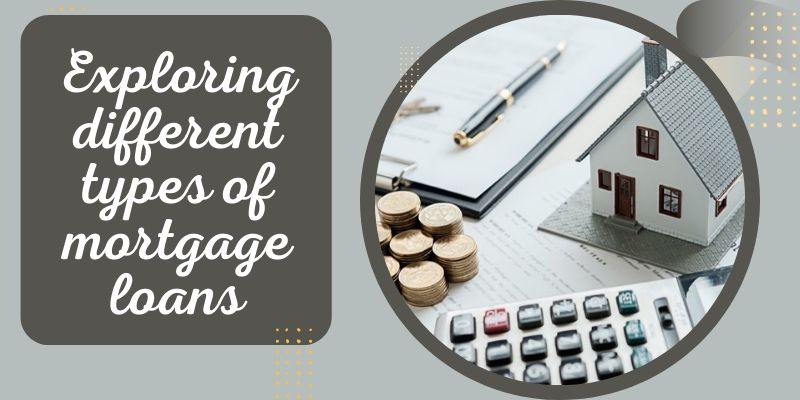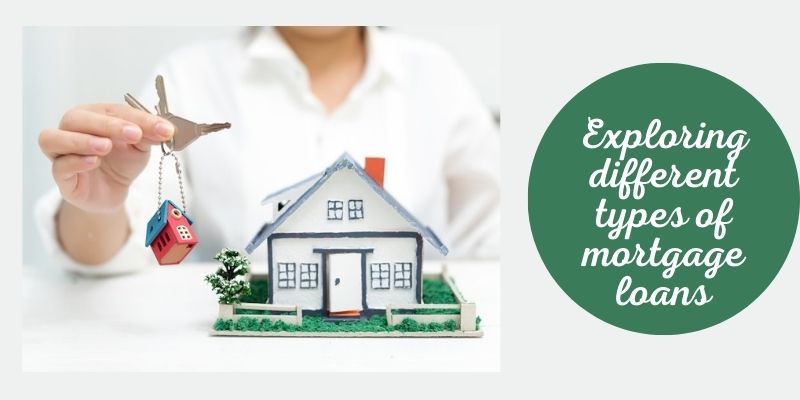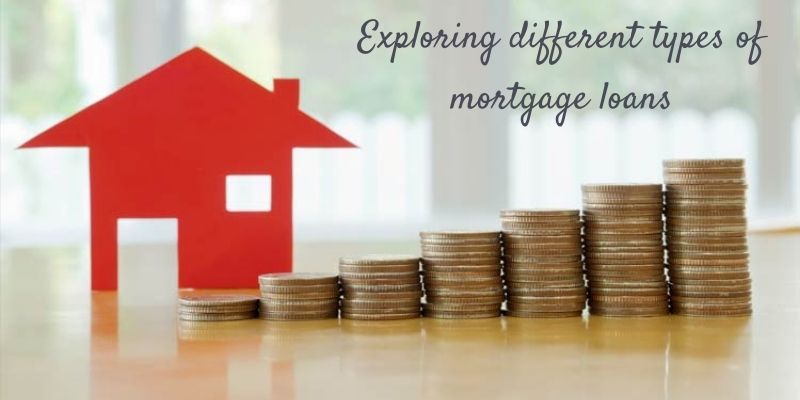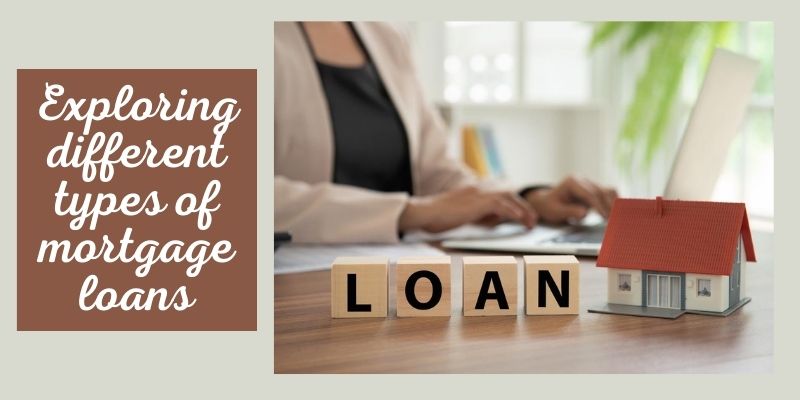Exploring different types of mortgage loans come in of forms. Before determining which mortgage is best for you, it’s critical to understand your alternatives and the various aspects you’ll want to take into account. in the below, seao.info will provide for you 5 Exploring different types of mortgage loans.
1. Conventional loan

Exploring different types of mortgage loans, The two types of conventional loans—the most common kind of mortgage—are conforming and non-conforming. This is what it indicates:
- Conforming loans: As their name suggests, a conforming loan “conforms” to a set of rules established by the Federal Housing Finance Agency (FHFA), which include specifications about credit, debt, and loan amount. (The conforming loan ceiling for 2023 is $1,089,300 in higher-cost areas and $726,200 in most places.) When a conventional loan satisfies FHFA requirements, it can be bought by Fannie Mae and Freddie Mac, the two GSEs that support a sizable portion of the mortgage market. In order to give lenders additional capital to develop more mortgages for more customers, Fannie Mae and Freddie Mac purchase loans from lenders.
- Loans that don’t conform: These loans don’t meet one or more FHFA requirements. A jumbo loan, or mortgage with a larger amount than the conforming loan limit, is one of the most popular types of non-conforming loan. Since the GSEs cannot buy non-conforming loans, lenders view them as a risky investment.
Pros of conventional loans
- The majority of lenders offer it
- Financing for permanent dwellings, second homes or vacation properties, and investment or rental properties is possible.
- 3% down payment is possible for a conforming, fixed-rate loan.
Cons of conventional loans
- required to have a credit score of at least 620
- less stringent debt-to-income (DTI) ratio requirements than for other types of mortgages
- When less than 20% is put down, private mortgage insurance (PMI) premiums are required.
2. Jumbo loan

Exploring different types of mortgage loans, Jumbo mortgages are home loans that are larger than the conforming loan restrictions set by the FHFA. Any loan over $726,200 in 2023, or $1,089,300 in higher-cost areas.
Pros of jumbo loans
- able to afford a more expensive house
- affordable interest rates, now comparable to those for conforming loans
- In locations with high housing values, it’s frequently the only choice
Cons of jumbo loans
- Not offered by all lenders
- higher minimum 700 credit score criterion, which is generally the case
- greater down payment needed, often between 10% and 20%
3. Government-backed loan
Although it is not a mortgage lender, Exploring different types of mortgage loans the U.S. government supports three major types of mortgages to help more Americans become homeowners:
- FHA loans: FHA loans are insured by the Federal Housing Administration (FHA) and are available to borrowers with credit scores as low as 580 and a 3.5 percent down payment or 500 and a 10 percent down payment. While that is unquestionably an advantage, FHA loans also impose additional fees in the form of mortgage insurance premiums. These fees aid the FHA in protecting lenders from defaulting borrowers. An FHA loan has a considerably smaller borrowing limit than conventional conforming loans, so you can’t borrow as much money with one.
- VA loans: Available to eligible members of the U.S. military (active duty, veterans, National Guard members, and reservists), as well as surviving spouses, VA loans are backed by the Department of Veterans Affairs (VA). There are no requirements for a minimum down payment, mortgage insurance, or credit score; nevertheless, you will be required to pay a funding charge at closing that can range from 1.25 percent to 3.3 percent.
- USDA loans: Under specific income restrictions, USDA-guaranteed loans enable moderate- to low-income borrowers purchase properties in rural, USDA-eligible locations. These loans don’t demand a down payment or credit score, but they do have guarantee costs.
Pros of government-backed loans
- More accommodating credit and down payment requirements
- helps borrowers who otherwise wouldn’t qualify
Cons of government-backed loans
- Additional expenses for VA funds, USDA guarantee fees, and FHA mortgage insurance
- limited to borrowers purchasing a house within the range of an FHA loan, those living in rural areas, and/or service personnel
4. Fixed-rate mortgage

As long as your loan is fixed-rate, your monthly mortgage payment (which includes both the principle and interest on the loan) will be constant. Most lenders offer varied term lengths for fixed loans, however the standard terms are 15 or 30 years.
Pros of fixed-rate mortgages
- mortgage with a set monthly amount
- cheaper to plan for
Cons of fixed-rate mortgages
- Interest rates for adjustable-rate loans are greater than the introductory rates.
- Refinancing is necessary to receive a lower rate.
5. Adjustable-rate mortgage (ARM)
Adjustable-rate mortgages (ARMs) have interest rates that fluctuate over time, in contrast to fixed-rate loans. With an ARM, you often receive a lower, fixed introductory rate for a predetermined time. After this time, the rate will go up or down for the remainder of the loan term at predetermined intervals. For instance, a 5/6 ARM has a fixed rate for the first five years before increasing or decreasing every six months depending on the state of the economy until you pay it off. Your monthly mortgage payment increases in tandem with your interest rate, and vice versa. Exploring different types of mortgage loans.
Pros of ARMs
- Reduced starting costs
- could eventually pay less if current interest rates decline
Cons of ARMs
- danger of greater monthly payments continuing
- Budgeting is more difficult as rates vary.
Conclusion
Exploring different types of mortgage loans, Both first-time and repeat home buyers must thoroughly research their mortgage choices. Knowing the different mortgage options available will help you select the one that best meets your financial circumstances and long-term objectives. Every type of mortgage, including conventional loans, jumbo loans, adjustable-rate mortgages, fixed-rate mortgages, and balloon mortgages, has advantages and things to keep in mind.


